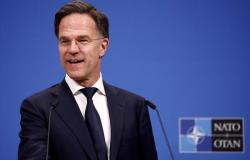I am around ninety leaders and ministers from countries in Asia, Africa, Europe, the Middle East and Latin America who are meeting today and tomorrow in Switzerland for the peace conference for Ukraine organized by the Government of the Confederation. “There will be two days of active work with countries from all parts of the world, with different nations, but united by the common goal of bringing about a just and lasting peace in Ukraine”, Ukrainian President Volodymyr Zelensky said via social media, adding: “I am grateful to all who chose to participate and demonstrate global leadership and commitment to peace, international law and the United Nations Charter.”
However, the ‘peace conference’ on Swiss soil started crippled by the lack of invitation to Russia, one of the two belligerents, and above all by the absence of China, which is a fundamental partner for Moscow: without Chinese microchips the military-industrial apparatus Russia would have much more difficulty fueling the continuation of the war in Ukraine. Another heavy defection arrived yesterday: that of Brazilian president Inacio Lula da Silva, who notoriously does not have great sympathy for Zelensky.
Putin’s offer
Meanwhile yesterday, on the eve of the conference, Russian President Vladimir Putin asked Ukraine, in practice, to surrender, withdrawing its troops from the south and east of the country and to renounce joining NATO. For Putin, Kiev should abandon the regions of Donetsk, Luhansk, Zaporizhzhia and Kherson, despite Russia not entirely controlling any of the four. He made requests that Zelensky compared to the “ultimatums that Adolf Hitler issued to the countries he was close to conquering, rejecting the “ultimatum”. Not exactly an exchange that portends an imminent peace.
Already in the past, and more than once, the Russian president has raised the possibility of reaching a negotiated solution. In reality, Moscow has always laid unacceptable foundations for Ukraine, starting with Kiev’s renunciation of its territories. Now, while Zelensky welcomes 90 leaders to a peace conference in Switzerland, Putin takes back part of the stage. The truce proposal becomes the basis for further reflections and observations by analysts and experts. The Institute for the study of war (ISW), an American think tank that monitors the progress of the conflict that began in February 2022, highlights that Putin’s proposal cannot be considered credible for a series of reasons.
The countries invited
The countries invited to the summit – which is held at Buergenstock, a resort with two five-star hotels, restaurants and spas perched on the hills above Obbuergen, in the canton of Nidwalden – were around 160, but only 92, according to the Swiss executive, had said yes. According to the Q&A published by the Swiss government, one of the topics that will be discussed is whether or not Moscow will be able to take part in the peace process, which should be a given, as Moscow is the aggressor, and therefore a belligerent. The precise list of countries present, including the level at which they will be represented, will be communicated this evening by the federal government, but it is known that there should be around ninety. Earlier in the week, in a briefing, the Swiss government said that half would be represented at the level of heads of state and government, the other half at the level of ministers; he now writes that the “majority” should be represented at the level of heads of state and government.
The Buergenstock conference, a location chosen because it can be easily secured while being easily accessible (not this weekend), comes after the large-scale war in Ukraine has been ongoing for over two years and shortly after the Russians unleashed , since May 10, an offensive in Kharkiv oblast, which however seems to have lost momentum. Russia, a senior NATO official acknowledged, has made some progress in the Kharkiv oblast, but with enormous human costs: according to the source, in May Russian losses would probably have amounted on average to around “one thousand” men per day, an “astronomical” number.
Overall, Russia maintains a “quantitative advantage” over Ukraine in “ammunition and men.” For now, however, it lacks sufficient ammunition and maneuver units to make “significant” progress. And the resumption of arms supplies by the West, after the US and the EU managed to temporarily overcome their internal political difficulties, has really made “the difference” on the field. The officer, however, urged us not to have any illusions: NATO expects an intensification of military operations in the coming weeks, “especially close to the Washington summit”. In a war of attrition, Russia maintains a natural advantage over Ukraine, being much larger and more populated: not only that, it can easily bomb Ukrainian industrial plants, while Kiev has much more difficulty doing the same to Russian ones. The source called for preparations for a “long war”.
For this reason, NATO intends to make military aid to Kiev structural, amounting to at least 40 billion euros a year. Italy, through Defense Minister Guido Crosetto, has opposed it, despite continuing to send military aid and preparing the ninth package for Kiev. The minister pointed out that already today, with the new stability pact, it is “problematic” for our country to respect the target of 2% of GDP allocated to defence, which it should have reached this year, based on the commitments made in the 2014. “We cannot add other ambitious objectives, also because I am not in the habit of making commitments that I then know I cannot respect,” added Crosetto, noting, not for the first time, that it would be appropriate to coordinate NATO policies with those that are decided at EU level, where the reform of the stability pact proposed by the Commission has been significantly tightened by Germany’s will.





